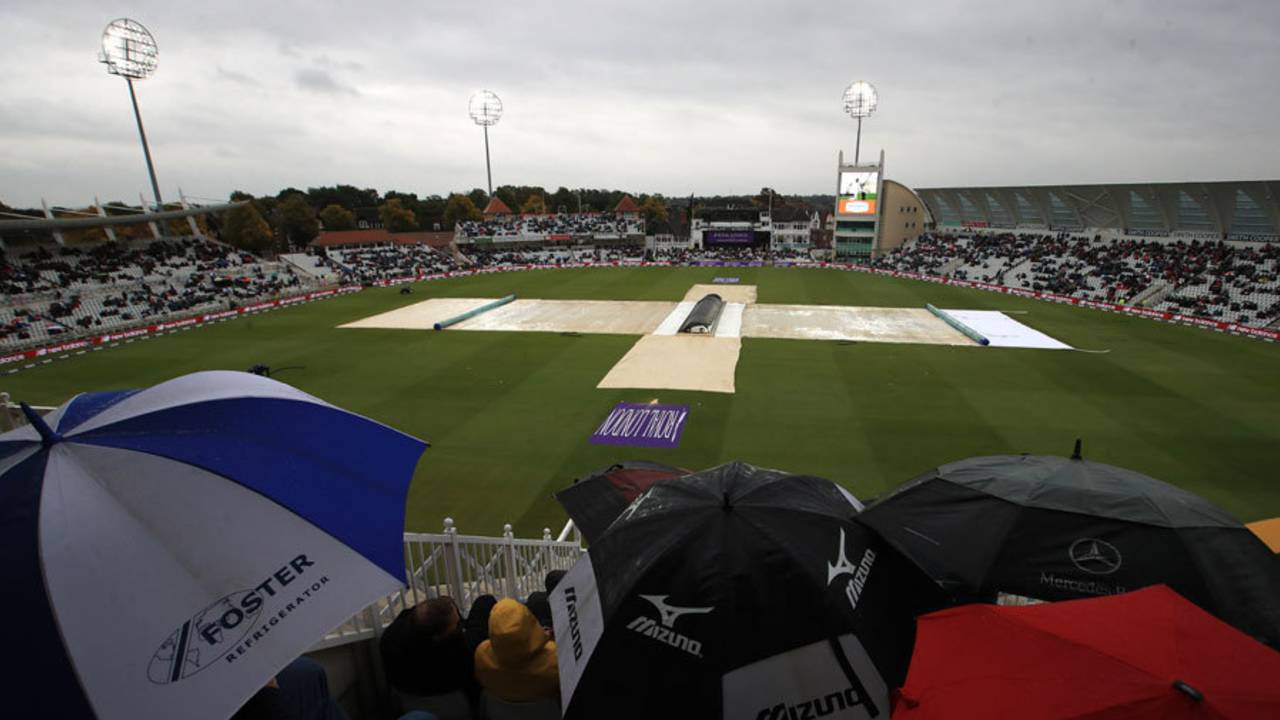Cricket will be 'hardest hit' by climate change
A report assessing the impact on a range of sports in the UK to changing weather patterns says the recreational game is most at risk
ESPNcricinfo staff
07-Feb-2018
The umbrellas were up as rain interrupted play • Getty Images
Cricket in the UK will be the "hardest hit" pitch sport by climate change according to a new report, which includes evidence that extreme weather has already had a "huge impact" on the game.
The report by the Climate Coalition, which studied the impact of climate change on a range of sports, says that recreational cricket is most at threat due to fixture disruption and damage to facilities with the ECB having spent a combined GBP2.6m (USD3.6m) in emergency grants in 2016 and 2017 to help clubs.
"I've been at the ECB since 2006 and we have had to implement flood relief efforts on half a dozen occasions," Dan Musson, the ECB's national participation manager, told the report. "Wet weather has caused a significant loss of fixtures every year in the last five at recreational level and significant flooding in six of the last ten years.
"In season, the worst year was 2007, with flooding in the Midlands and the Thames Valley. Out of season, the worst was 2015-16, when Storms Desmond and Eva badly affected more than 50 community clubs
"There is clear evidence that climate change has had a huge impact on the game in the form of general wet weather and extreme weather events."
The report uses Glamorgan as a case study of a county badly hit by poor weather. Since 2000, they have lost more than 1300 hours of cricket, which equates to 217 days and more than 20,000 overs. In 2017, three of Glamorgan's home T20 Blast matches were abandoned - a significant problem for counties who rely in T20 for a major source of income. The risk of a period of bad weather is one of the arguments put against playing domestic T20 in a block in the UK rather than it being spread through the season.
"T20 Blast is a great way to get new people through the gates and into cricket, but they won't come back if this keeps happening, and it's damaged the club to the tune of £1m," Dan Cherry, Glamorgan's head of operations, said.
"Climate change is becoming a huge factor. If we don't take it seriously, it will fundamentally change the game. It's simple: the less cricket we play at every level the fewer people will watch it, the less they will come to the ground and pay to enter, the less chance there is for young people to be inspired to take up the game."
While the report focuses on the impact on the English game, there is currently an example of the effect of extreme weather on cricket in Cape Town, which is in the midst of a severe drought with the city close to day zero when public water supplies will be switched off. Although international and first-class cricket is continuing, school and club cricket has been cancelled.
